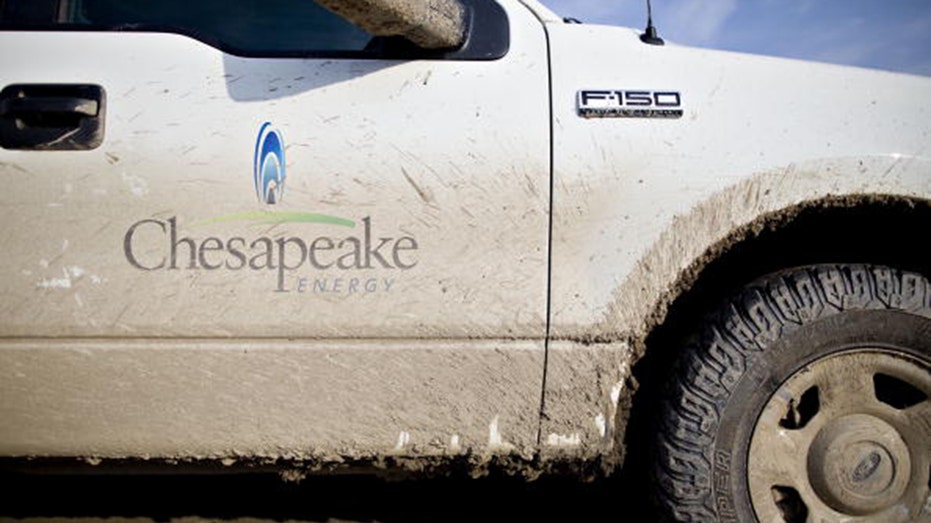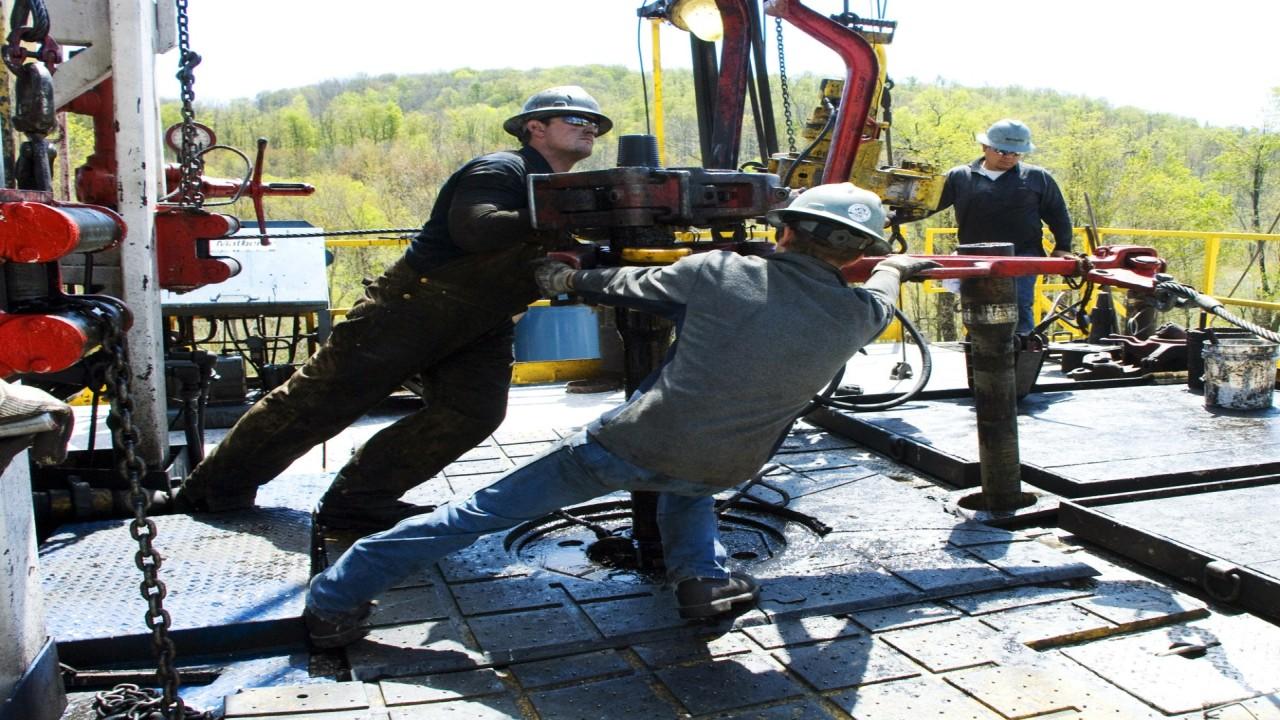Fracking trailblazer Chesapeake Energy files for bankruptcy
Coronavirus pandemic proved to be the final blow for a shale-drilling pioneer long hamstrung by debt
Chesapeake Energy Corp. said Sunday that it had filed for bankruptcy protection as an oil- and gas-price rout stoked by the coronavirus pandemic proved to be the final blow for a shale-drilling pioneer long hamstrung by debt.
Co-founded in 1989 by the late wildcatter Aubrey McClendon, Chesapeake was early to recognize that horizontal drilling and hydraulic fracturing could unlock vast troves of natural gas, a trend that led to a rebirth of American fossil-fuel output and eventually made the U.S. the top oil producer in the world.
By the end of 2008, the Oklahoma City-based company had drilling rights to nearly 15 million acres, according to a securities filing, an empire roughly the size of West Virginia. That vast footprint once helped Chesapeake earn the title of second-largest U.S. gas producer.
WHEN BOEING 737 MAX CERTIFICATION FLIGHT TESTS WILL BEGIN
But Chesapeake's breakneck growth left it highly leveraged, and it was far slower than many of its peers to pivot to tapping shale formations for oil, which turned out to be much more lucrative than gas. The result was a painful fall in recent years as Chesapeake shrank, selling assets to pare debt before winding up in bankruptcy court.

A Chesapeake Energy Corp. truck sits outside a Chesapeake field office in Towanda, Pennsylvania, on Tuesday, April 6, 2010. Photographer: Daniel Acker/Bloomberg via Getty Images
"They were at the forefront, and they were the most aggressive. But because of how aggressive they were, it left them unable to pivot to what ended up being the real moneymaker," said Chris Duncan, a Brandes Investment Partners director with a say in mutual funds that own Chesapeake debt.
Chesapeake is one of many debt-laden U.S. oil and gas producers now facing a reckoning as a coronavirus-induced economic slowdown saps demand for fossil fuels.
AMAZON, SOFTBANK HELD TALKS OVER RUSSIAN ONLINE RETAILER OZON, SHAREHOLDER SAYS
Wall Street aided U.S. shale companies after the oil-price downturn of about five years ago, helping many companies stay afloat. But capital infusions are harder to come by after years of poor financial performance. U.S. producers raised about $23 billion in debt and equity financing last year, less than half of the roughly $57 billion they received in 2016, according to Dealogic.
| Ticker | Security | Last | Change | Change % |
|---|---|---|---|---|
| CHK | NO DATA AVAILABLE | - | - | - |
With less access to external capital, dozens of smaller shale players are likely facing bankruptcy in the coming months. U.S. shale, like so many oil and gas discoveries before it, is poised to become the province of bigger, better-capitalized companies.
"If they didn't go into this with a strong balance sheet or at least a strong line of credit, I think they will not survive," said Archie Dunham, a former chairman of Chesapeake's board, referring to the industry broadly. "Hopefully what has happened in the industry will teach the next generation of leaders and managers and equity holders that debt is something that you avoid to the extent that you can."
Mr. McClendon spent most of his early days in the industry as a landman, or specialist tasked with leasing land for oil and gas exploration. Under his leadership, Chesapeake was incessant in scooping up promising drilling prospects.
"It was a race in those days to amass the biggest lease portfolio that you could. He wanted to be Exxon," said Harrison Williams, who advised on acreage sales to Chesapeake in the early 2000s. "There just wasn't enough money on God's green earth to drill it all."
Chesapeake became one of the first stars of the fracking boom. Mr. McClendon was a charismatic pitchman, talking up the promise of American natural gas to Wall Street investors and politicians.
The company's success allowed Mr. McClendon to champion the transformation of Oklahoma's state capital into a more modern metropolis. He was part of a group that bought the Seattle SuperSonics NBA basketball team in 2006 and later moved it to Oklahoma City. The team, now known as the Oklahoma City Thunder, plays in the Chesapeake Energy Arena. He also indulged in his passion for fine wine, building a large collection, among many side pursuits.
But Mr. McClendon's lavish spending eventually proved troublesome for Chesapeake. In 2008, he had to sell 94% of his stake in the company, or tens of millions of shares, to satisfy a margin call. Later, Mr. McClendon's personal financial dealings, including his use of loans to participate in a company perk that allowed him a stake in every Chesapeake well, drew shareholder ire. Investors, including Carl Icahn, ousted him in 2013.
Three years later, Mr. McClendon died in a car crash at age 56, a day after being indicted by a federal grand jury on accusations of conspiring to rig the price of oil and gas leases. Mr. McClendon denied the charge.
By the time Doug Lawler took the helm of Chesapeake in 2013, the company was weighed down by some $13 billion in debt. Mr. Lawler has spent the better part of his tenure selling off pieces of the vast empire Mr. McClendon amassed to pay off those obligations. Year by year, he parted with assets from Oklahoma to Louisiana and a northeast drilling region that Mr. McClendon once called the "biggest thing to hit Ohio since the plow."
CLICK HERE TO READ MORE ON FOX BUSINESS
Mr. Lawler deviated from that playbook in 2018, when he struck a deal valued at about $4 billion, including debt, to buy Texas driller WildHorse Resource Development Corp., part of an effort to transform Chesapeake into more of an oil producer.
But the pivot to oil, years after rivals such as EOG Resources Inc. took such a course, proved too late. Chesapeake's debt still totaled about $9.6 billion as of the first quarter, S&P Global Market Intelligence data show, even as its daily output of about 2.9 billion cubic feet of natural gas and oil was down roughly a third from the company's peak and its footprint of land leased for drilling was less than a quarter of what it once was.
GET FOX BUSINESS ON THE GO BY CLICKING HERE
Under mounting strain this spring as low oil and gas prices rocked the industry, Chesapeake completed a reverse stock split in April and warned May 11 that it might not be able to stay in business, its second such warning in recent months. The company reported a first-quarter loss of more than $8 billion, led by a write-down of oil-rich properties in places including Texas and Wyoming.
Chesapeake also offered 21 high-ranking employees cash-retention payments totaling about $25 million in exchange for waiving equity and bonus awards, a move that commonly precedes bankruptcy. Corporate-governance data company Equilar Inc. said it was unclear how much each executive would receive. Mr. Lawler's realized pay through the end of last year totaled more than $48 million, Equilar said.
By mid-June, Chesapeake's market capitalization was less than $200 million, FactSet data show, down from roughly $38 billion at its 2008 peak.




















